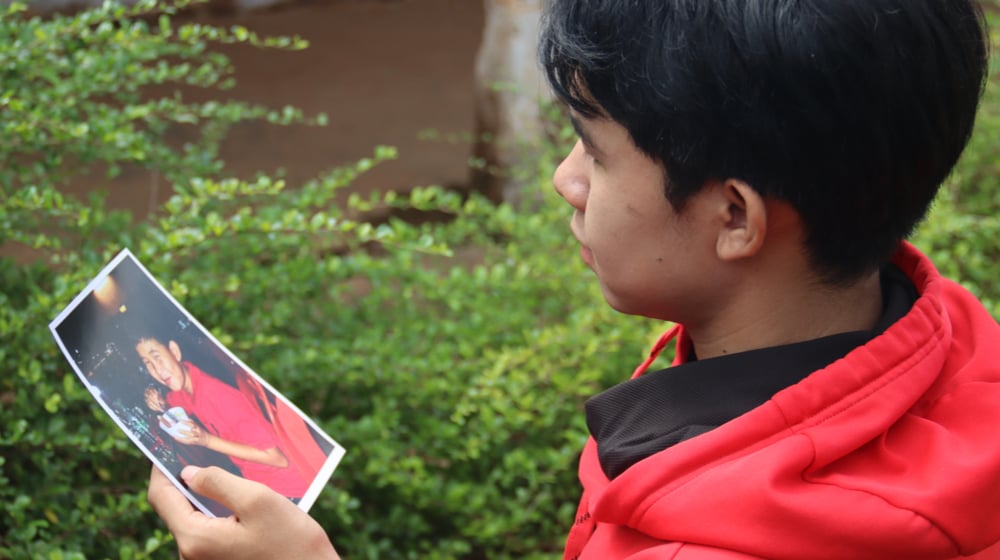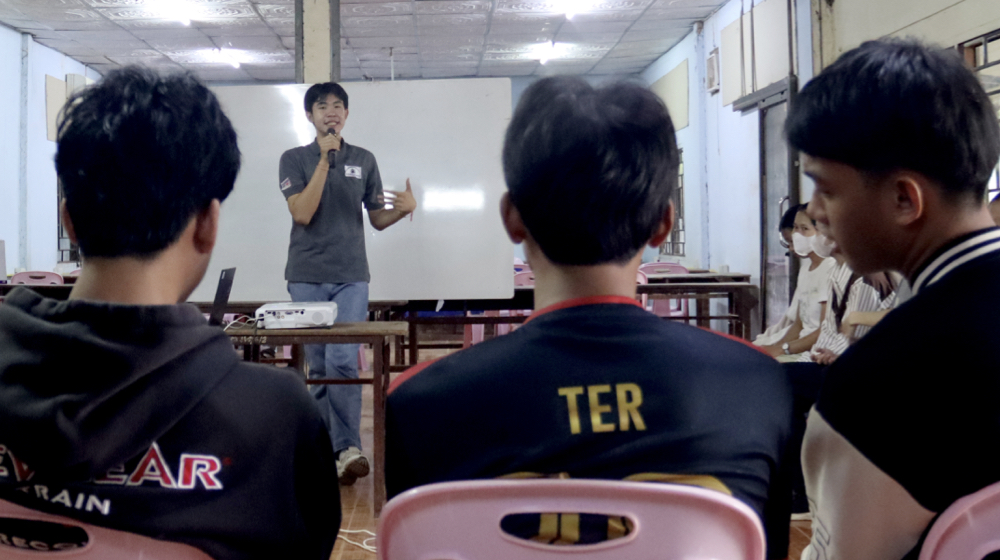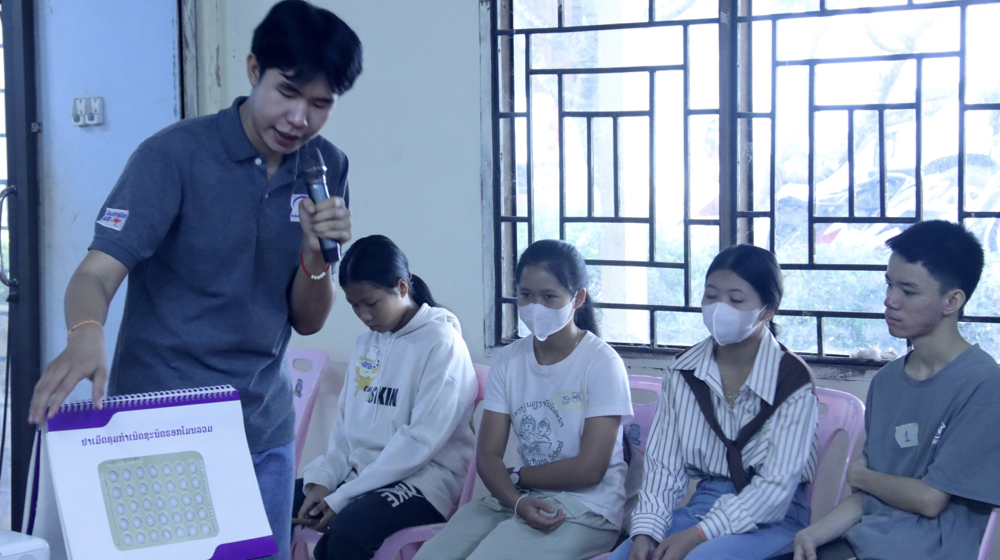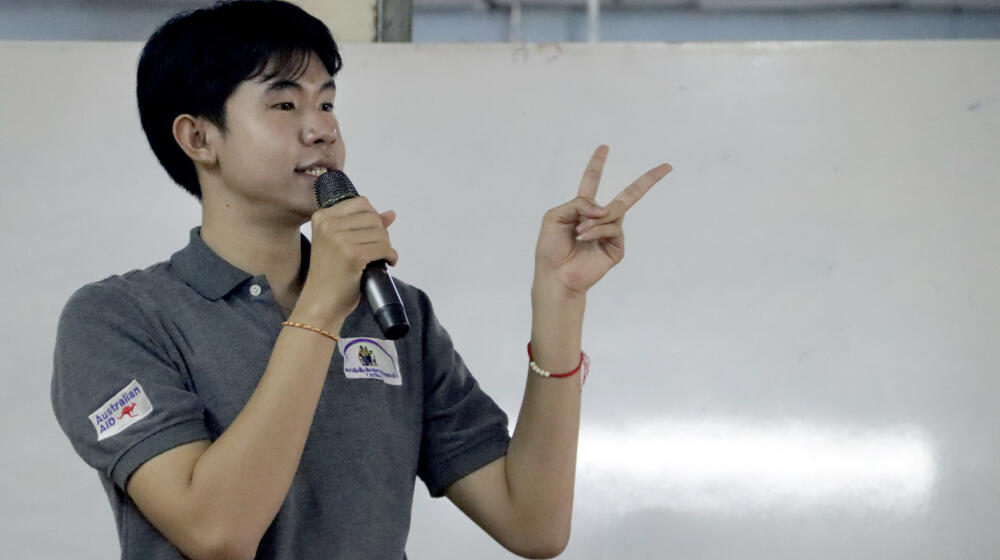Sinnalath Padith, affectionately known as “Big,” embodies the power of resilience and transformation. At just 18 years old, this youth leader from Vientiane, the capital of Lao PDR, has become a beacon of hope and a tireless advocate for family planning and sexual and reproductive health.
Big’s journey is a testament to turning personal hardships into opportunities for change. “I want to be a model for others—to show that being yourself and believing in yourself is possible, no matter the challenges,” he says, reflecting on his own path.

Big’s early life was marked by significant struggles. Born to teenage parents who were ill-prepared for parenthood, he was soon placed in the care of his grandmother after his parents’ relationship fell apart. Despite her best efforts, Big often lacked basic necessities and faced difficulties in continuing his education.
Adding to his struggles, Big grappled with profound isolation and mental health challenges, exacerbated by his family's rejection of his LGBTQ+ identity. “I always questioned why I had to endure a painful life without my parents beside me, why my parents didn’t support me, or provide a safe space like other families,” he recalls.
“If only my parents had known about and had access to family planning services, perhaps I wouldn’t have faced such hardships."
A turning point came when a compassionate cousin stepped in to support his education, allowing Big to complete high school. This act of kindness ignited a desire within him to help others facing similar or worse situations. At just 14, Big began volunteering in family planning promoting knowledge and access to contraception, driven by a commitment to prevent others from enduring the same hardships he faced.
Through his work with the Promotion of Family Health Association (PFHA), a UNFPA-supported NGO, Big has become a key youth leader in breaking down barriers to contraception access. “Contraception is a crucial tool for addressing unplanned pregnancies and relationship issues” he says, emphasizing the need to overcome cultural barriers and promote family planning. “If only my parents had known about and had access to family planning services, perhaps I wouldn’t have faced such hardships. They could have planned for me when they were truly ready, and my journey might have been very different.”

In Lao PDR, where family planning is essential for socio-economic development, Big’s advocacy is vital. “Safe and voluntary family planning is a fundamental human right,” explains Dr. Bakhtiyor Kadyrov, UNFPA Representative in Lao PDR. “Rights-based family planning provides significant health, social, and economic benefits for women, girls, and entire communities.”
Investing in family planning is not only a human rights issue but also a strategic move for national development. A 2022 investment case analysis for Lao PDR revealed that every dollar invested in family planning yields US$33.6 in benefits to families and society. “Family planning keeps girls in school, enables women to join the workforce, reduces household poverty, improves nutrition, and decreases inequalities,” Dr. Kadyrov adds.
“Rights-based family planning provides significant health, social, and economic benefits for women, girls, and entire communities.”
-Dr. Bakhtiyor Kadyrov, UNFPA Representative in Lao PDR
The FP2030 initiative, launched in March 2024, marks a significant step toward universal access to sexual and reproductive health by 2030 in Lao PDR. This commitment aims to enhance contraceptive use and ensure youth-friendly services, reducing unmet family planning needs among adolescents and young people to 12% by 2030. Additionally, the availability of contraceptives and reproductive health commodities is set to increase from 53% to 100%.

While ambitious, these goals are attainable. Meeting the additional cost of US$16.7 million by 2030 could generate US$560 million in returns, preventing nearly 1 million unintended pregnancies and boosting economic growth through increased workforce participation and educational attainment.
Big and his fellow youth leaders at PFHA are ready to contribute to these FP2030 goals. Looking ahead, Big envisions a future where sexual and reproductive health education is integrated into school curriculums nationwide. “Providing timely and quality information can transform lives,” he says. “I hope to see broader community engagement in promoting rights and choices, especially in remote areas. This cause must be a priority for all partners and donors, ensuring that today’s decisions lead to a brighter future for individuals and the nation.”
Learn more


